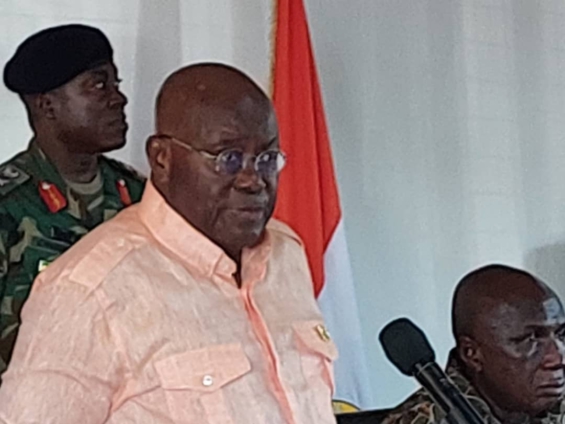The Director of the Institute of Local Government Service, Professor Nicholas Awortwi, says it takes a courageous leader to voluntarily dilute their power for the advancement of a decentralized system of governance.
He was speaking in reference to President Akufo-Addo’s determination to ensure that the 1992 constitution is amended to allow for the election of mayors at the local government level based on a multi-party system rather than the current system where they are appointed by the ruling government.
Describing Article 553 PNDC law 207 as a military regime export which does not reflect the multi-party democratic dispensation of Ghana, he noted that it is time for its amendment.
According to him, its continuous existence in Ghana’s political system has created the tendency where those in power use it to their advantage to appoint their foot soldiers and cronies into local government systems.
Speaking on JoyNews’ PM Express, Prof. Awortwi said, “once a system is put in place and that system benefits some individuals and institutions there’s a tendency for them to hold on to that institution and to not change it because it benefits some people.
“And that’s why we have seen political parties, anytime they’re in opposition they want that change. But when they’re in government, they want it maintained so that they could use the opportunity that it provides to provide jobs for party foot soldiers, for those who actually campaign for them so to fill in the political positions.
“So once you have that political advantage, you wouldn’t want to lose it. And then you will need courage, you will need a leader who says I want to let my power go. And I have done this research in other places. In many countries, especially in Latin America, when they moved from appointment of Mayors to election of Mayors it was a time when the government knew that it was going to lose elections and it did.”
In 2019, President Akufo-Addo had initiated actions to hold a referendum to introduce the multi-party system in Ghana’s local government system.
However, following stiff opposition from the National Democratic Congress and other civil society organization who had raised concerns that the introduction of a multi-party system would increase the polarization of politics in Ghana, the referendum was abandoned.
According to Prof. Awortwi, currently, consensus building is ongoing in order to reach a common agreement on the fate of politics at the local government level, as the President has expressed determination to have mayors elected.
Latest Stories
-
Paris 2024: Opening ceremony showcases grandiose celebration of French culture and diversity
3 hours -
How decline of Indian vultures led to 500,000 human deaths
4 hours -
Paris 2024: Ghana rocks ‘fabulous fugu’ at olympics opening ceremony
4 hours -
Trust Hospital faces financial strain with rising debt levels – Auditor-General’s report
5 hours -
Electrochem lease: Allocate portions of land to Songor people – Resident demand
5 hours -
82 widows receive financial aid from Chayil Foundation
5 hours -
The silent struggles: Female journalists grapple with Ghana’s high cost of living
5 hours -
BoG yet to make any payment to Service Ghana Auto Group
5 hours -
‘Crushed Young’: The Multimedia Group, JL Properties surprise accident victim’s family with fully-furnished apartment
6 hours -
Asante Kotoko needs structure that would outlive any administration – Opoku Nti
6 hours -
JoyNews exposé on Customs officials demanding bribes airs on July 29
7 hours -
JoyNews Impact Maker Awardee ships first consignment of honey from Kwahu Afram Plains
8 hours -
Joint committee under fire over report on salt mining lease granted Electrochem
8 hours -
Life Lounge with Edem Knight-Tay: Don’t be beaten the third time
8 hours -
Pro-NPP group launched to help ‘Break the 8’
8 hours

